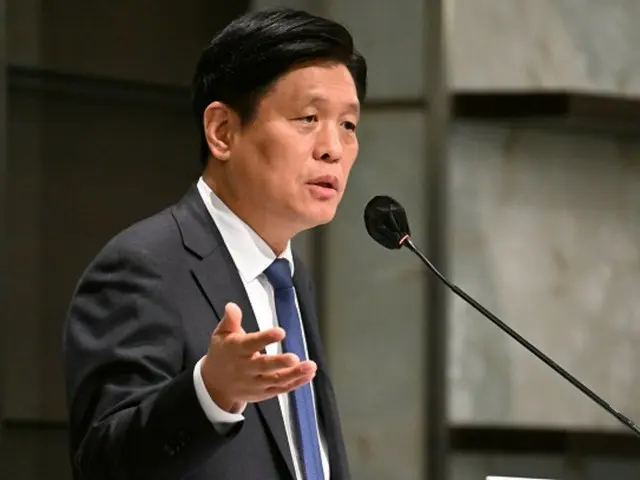Immediately after the vote, he told reporters, "I am very disappointed that the bill to appoint special prosecutors for civil unrest and Kim Gun Hee was rejected today. First of all, we plan to re-vote the bill tomorrow as a top priority."
However, the Democratic Party is planning to change the method of the special investigation into the rebellion to a "third-party recommendation method." Cho said, "The question of what to do with the three will be decided through discussion within the National Assembly. Who will make the recommendation is up to the National Assembly."
"We plan to propose the Kim Kuon-hee special prosecutor bill as soon as it is ready," he added.
In response to a question about the People's Power (the ruling party) proposing the revised special investigation law, he said, "They only make comments about individual personnel matters.
"We never said anything about proposing the revised special prosecutor law at the ceremony. We proposed it, and many People's Power lawmakers have mentioned recommending a third party, so I think the special prosecutor law will pass overwhelmingly," Cho said.
Meanwhile, in the afternoon plenary session of the National Assembly, a second vote was held on eight bills that had been passed by the National Assembly under the leadership of the opposition parties and vetoed by the Acting President.
As a result of the revoting on the two special investigation bills, four agricultural bills including the Grain Management Act, the partial amendment to the National Assembly Act, and the partial amendment to the National Assembly Testimony and Expert Opinion Act, all eight bills were rejected.
The bill was automatically scrapped. The People's Power Party had previously made a "no" platform for all eight bills. "The Yoon Seok-yeol government's unconstitutional declaration of emergency law has caused internal unrest.
The bill to appoint a special prosecutor to investigate the truth behind the murder of the suspected perpetrator was rejected with 198 votes in favor, 101 against, and 1 abstention out of a total of 300 votes.
The special counsel law, which will investigate all suspicions related to the president, requires that the negotiating group not including the president and the majority party in the non-negotiating group each nominate one special counsel candidate, and the president will appoint one of them.
According to this, the Democratic Party and the Fatherland Reform Party will have the right to recommend the special prosecutor, which drew criticism from the government and ruling party, who called it unconstitutional.
The bill to appoint a special prosecutor to investigate the truth behind the scandal was rejected with 196 votes in favor, 103 against, and 1 invalid vote out of 300 votes.
2025/01/08 20:53 KST
Copyrights(C) Herald wowkorea.jp 83

